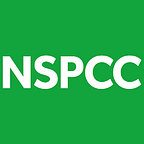Sounds like the future: voice tech
Part 1: the essentials. What is it and why should you care?
Louise Corden, Lead Digital Producer, guides us through the basics.
You might have heard some of the dizzying stats about voice technology — but what is it, how much does it affect your organisation, and why should you care?
Voice assistants — the collective term for the software including Alexa, Siri, Cortana and OK Google — are popular and growing.
Let’s start with the hype:
- Amazon sold out of Echo Dots worldwide in their Black friday sale — and now say there are 100million Alexa enabled items worldwide
- OK Google will be available on a billion devices by the end of January
- The number of US households with access to a smart speaker was expected to reach 50% by the end of 2018, according to Voicebot.ai
- Adoption rates for smart speakers are even higher than they were for smartphones when those first came out, according to Voicebot.ai
- 50% of all searches will be voice searches by 2020, according to comScore
But more than being a very popular gimmick, Voicebot.ai — the leading website analysing voice tech — describe this as the next evolution of interaction with tech: from clicking on a PC, to touch on smartphones, to voice.
The most popular uses are those that naturally work best by voice, for example playing music, reading recipes and setting timers while you cook, telling rubbish jokes to entertain the kids.
In the same way that smartphone usage changed the way people interacted with devices, the best ‘skills’ — which is what you call apps for Alexa and other assistants — are adopted when they’re intuitive and relevant to how and where people will use them. Most smart speakers are in shared family spaces: kitchens & living rooms. But people have access to virtual assistants via almost any smartphone or tablet; these are either inbuilt eg Siri on Apple devices, or via an app eg the Alexa App on any tablet.
For charities they present a huge opportunity to connect to your audience in their homes and on the go. Some charities have been quick to embrace voice, with Cancer Research UK launching their alcohol tracker last year, and British Red Cross launching First Aid, so you can say ‘Alexa, ask First Aid how to treat a nosebleed’.
The Breast Cancer Care ‘Taking care of your breasts’ guide for self examination is a great example of something that naturally works in this medium. There are step by step voice instructions for a task you need to use your hands for.
So I’m delighted to announce we’ve launched an NSPCC skill for Amazon Alexa. It will help deliver our core purpose: keeping children safe, through playing the PANTS song & interactive voice game to help them learn their bodies belong to them. This song and game existed in other formats as part of our PANTS campaign so it was a natural fit to move them to a voice medium. And because we couldn’t deliver services without income we’re also accepting donations through Alexa — becoming one of the first UK charities to do so.
It’s worth emphasising that voice tech is still emergent, with changes happening all the time, and Alexa crashing on Christmas day from unexpectedly high usage.
A stat reported by The Information last year suggested only 2% of Alexa owners had made purchases through their devices (although Amazon claimed this was inaccurate, and purchases were made by around 20% — I assume the latter number includes pre-purchase research). This may be question of maturity: people were slow to start purchasing online initially too. Or it might be about convenience: except for repeat items like groceries, people want to see or touch purchases. Either way, it might be a shrewd move on Amazon’s part in October 2018 to allow charities to accept donations, and build trust in the eco-system. Time will tell.
Voice tech jargon buster:
The phrase you use to open a skill on Alexa is made up of various constituent parts:
Our A-Z guide to the WTF of voice tech :
Want to learn more? Here are some other sources of info:
- Meetups eg London Chatbots and Voice Assistants, London Alexa Devs
- Voicebot.ai
- https://voiceprinciples.com/ — a great list of voice design principles, collated by @bensauer
See Sounds like the future: part 2 for how to get started building your own voice skill.
